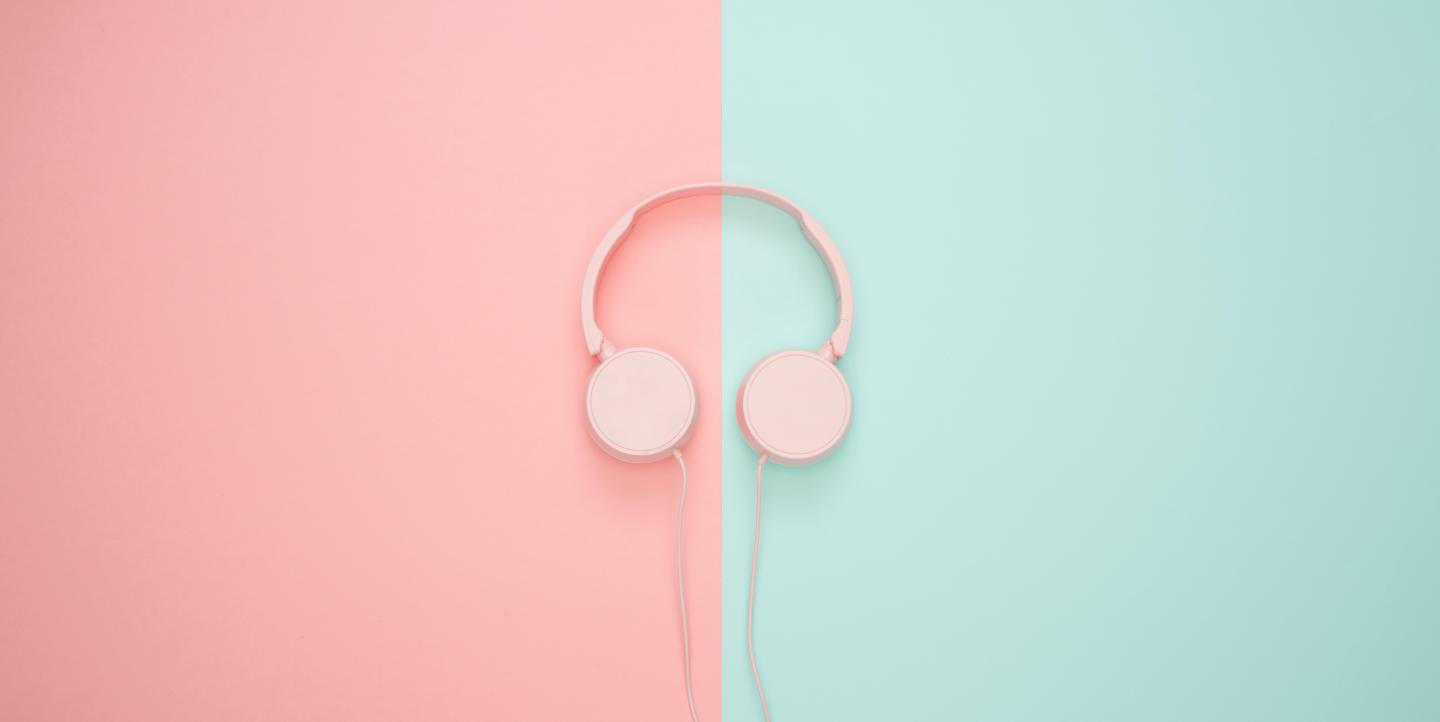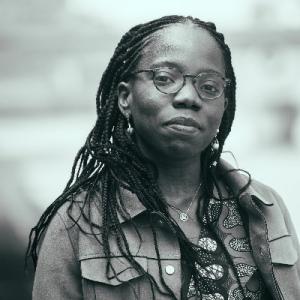"What would you have liked your mommy to tell you?"
That is the question that Diane Audrey Ngako, the Cameroonian founder of Omenkart, a communication agency, asks all her guests in her successful podcast entitled Si maman m’avait dit (If Mommy had told me). Twice a month, she gives the floor to a woman or a man to speak about taboo subjects such as endometriosis or polygamy in Africa. The podcast works because the audio format protects the guests' intimacy and image.
Appreciated for their ease of access, both in terms of production and distribution, podcasts are widely distributed around the world and are increasingly developing in French-speaking Africa.
It is, however, very difficult to obtain figures on podcast consumption in Africa. There is no standard measurement method, and often the public does not have a clear definition of what constitutes a podcast.
According to the Reuters Digital News Report, in South Africa and Kenya, about 40% of the most educated people in urban areas are monthly podcast listeners. "In Africa, smartphone use is more dominant than in the rest of the world, which encourages the development of new uses. However, constraints around bandwidth affect growth," the report says.
[Read more: Tips for podcasting during a pandemic]
Launched in April 2020, Conversation Privée (Private Conversation) is one of the latest shows to emerge from the podcast ecosystem in Francophone Africa. Twice a month, entrepreneurs, executive managers, journalists and key players from the world of fashion and culture, share behind the scenes stories about their profession and their lives in Abidjan, Ivory Coast. They also discuss their view of the world and of success with host Jessica Brou.
"I'm a big consumer of podcasts to begin with. I listen to them three to four hours a day, whether they're news, history or personal and professional development podcasts," Brou explains. "But I found that the development podcasts did not really resonate with my daily life in Ivory Coast or correspond to the realities of Francophone Africa." Instead,she wanted to discover and showcase people who were building thriving professional careers in Francophone Africa, which led to the creation of the show.
Finding the audience
In the podcasting world, getting audiences to discover and listen to audio productions remains a key challenge for many creators around the world. To succeed, creativity and resourcefulness are essential.
"I tell a lot of people about the podcast and when an episode is likely to appeal to someone close to me, I send it to them — I don't like being sent messages that were sent to dozens of people, so I avoid doing that myself,” Brou says. "Social networks are a must. Conversation Privée has an Instagram page and a LinkedIn account. LinkedIn is a great ally and helps the 'discoverability' of the podcast.”
Another podcast is also taking off in Mali. Directed by Hadèye Fofana and Mohamed Sissoko, it is called Tounka, which means "adventure" in Bambara.
"We chose this name because we consider literature to be an adventure,” the young producers say. "Our goal is to make those who listen travel through our voices, but also to take them with us into the world of the books that we share with them every Friday on our Youtube channel."
[Read more: Jordanian podcast network revives storytelling tradition, with no taboos]
According to them, Malian youth do not read enough, because of a lack of access to culture and tools to stimulate interest in literature.
"Tounka was born out of a desire to make Malian and African youth discover (or rediscover) literature. More than ever, they must embrace literature, from the continent and elsewhere, as well as its literary figures, in order to understand and face the world,” Fofana says. "We have made it our mission to bring forgotten authors of our continent back to the fore."
One of the most recent episodes of the podcast tells the life and work of Yambo Ouologuem, a Malian writer, author of “Le devoir de violence” (“The Duty of Violence”), and the winner of the prestigious Renaudot literary prize in 1968.
Creating and sharing the podcast remains difficult because the team has limited means. Fofana and Sissoko only have their smartphones as recording devices. Their podcast is broadcast exclusively on Youtube and advertised through WhatsApp.
Podcasting business models
A podcast industry is starting to take shape in the English-speaking countries of the African continent: Kenya hosts a podcast festival — unfortunately canceled this year because of the global health crisis — and hosting platforms like Afripods are starting to emerge. However, in French-speaking Africa, no one is making a living as a podcaster yet, and those who wish to face many challenges.
The high cost of internet connection and lack of knowledge of the format, due in particular to streaming platforms' low interest for these countries, all stand in the way of the industry's development.
Abèdjè Sinatou Saka is a journalist and editorial project manager at RFI and France 24. She is in charge of the development of the channels' podcast offering. She is from Benin, and is the creator of Afrofuturismes, a podcast broadcast on RFI in August 2019. It's an original creation that delves into the history of a movement born in the United States but questions African futures.
Photo CC-licenced by Icons8 Team via Unsplash.


